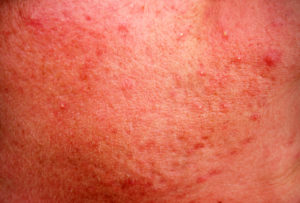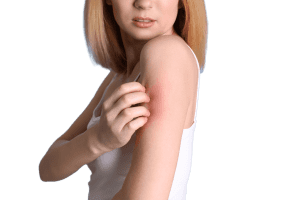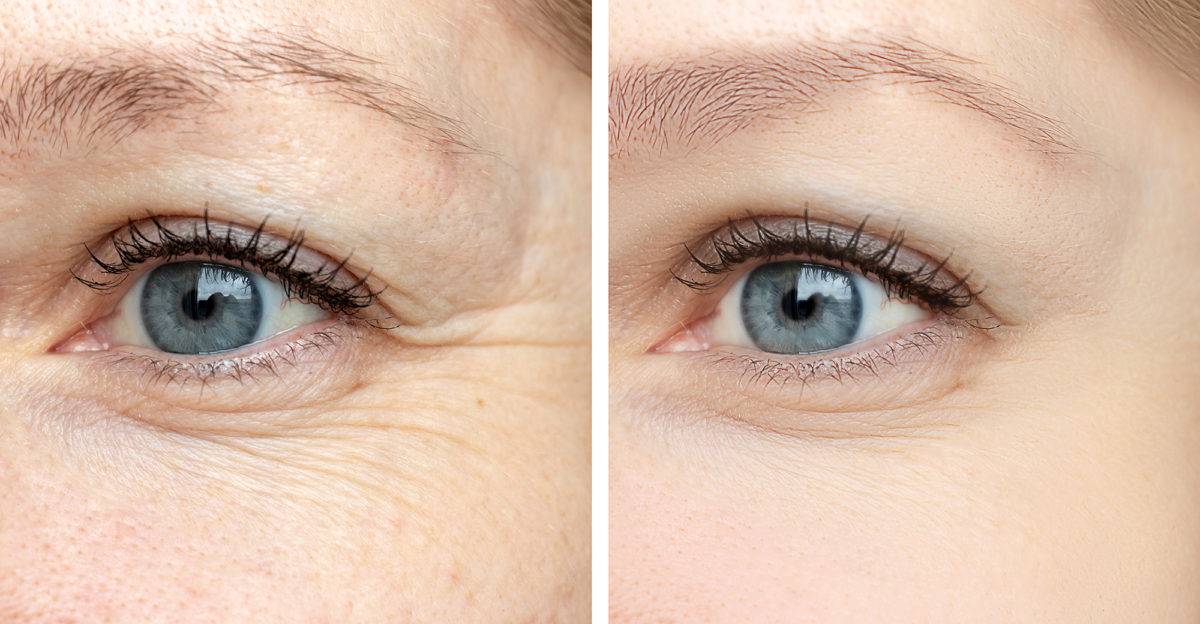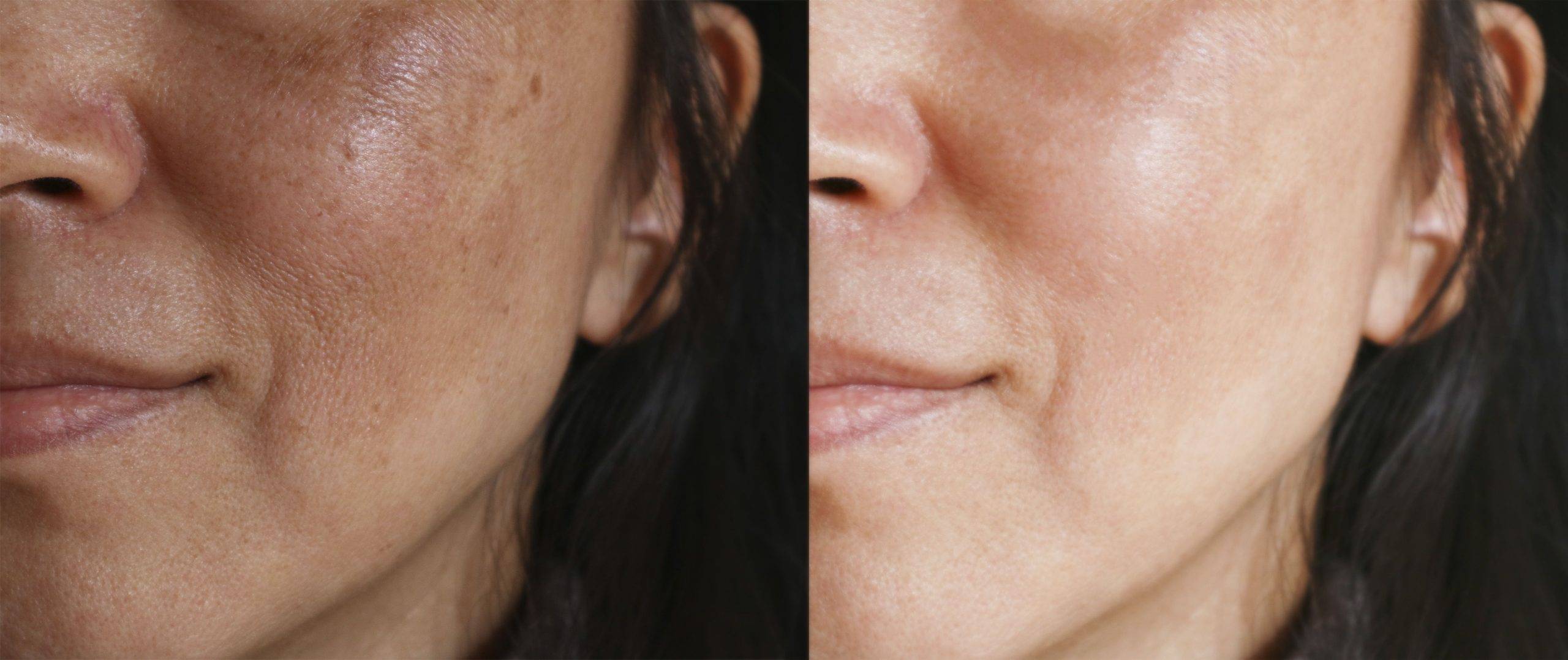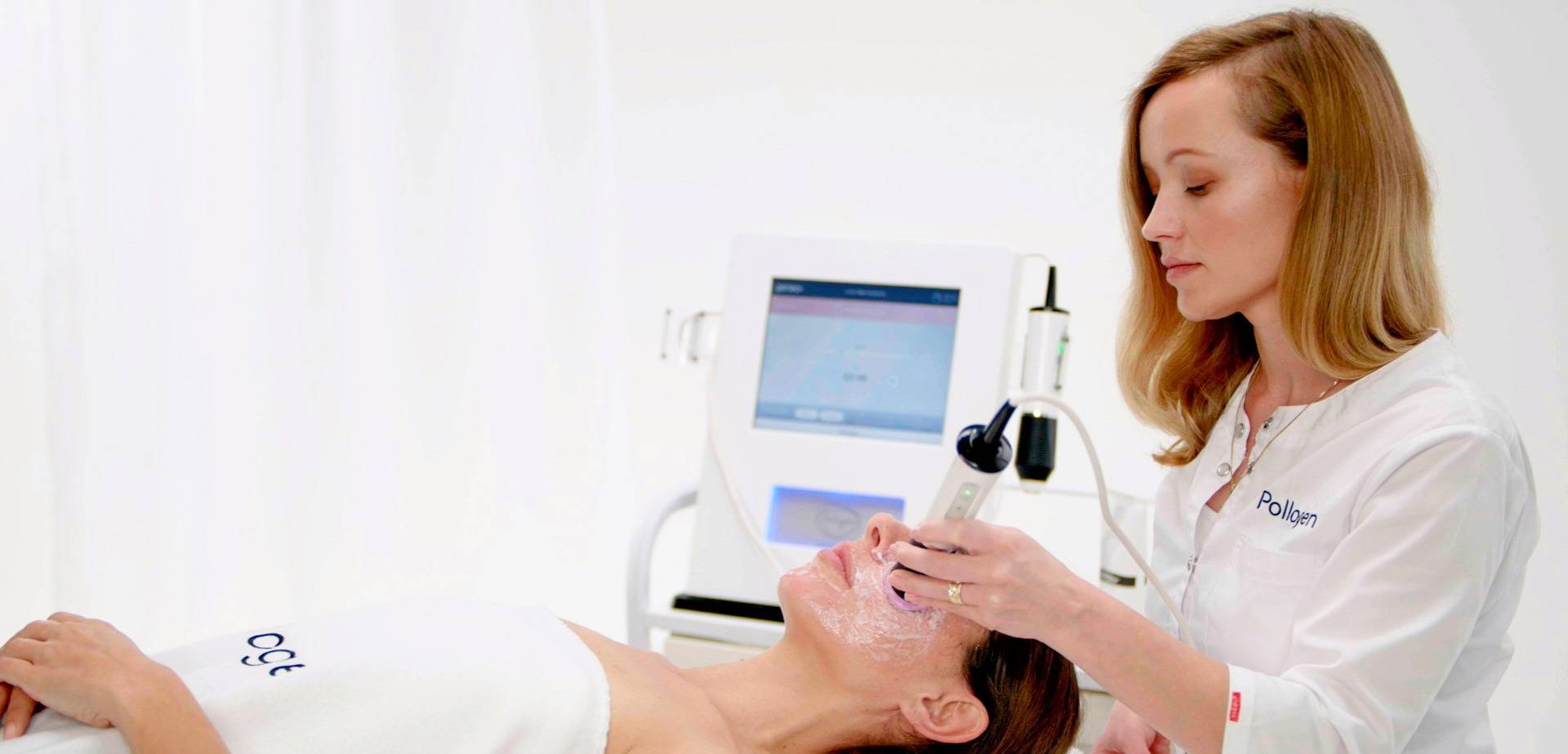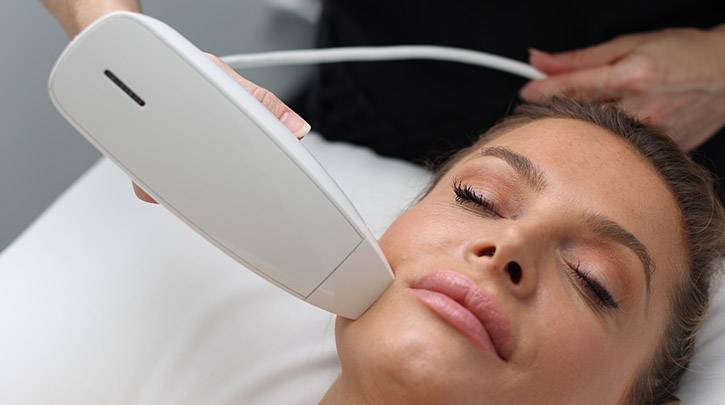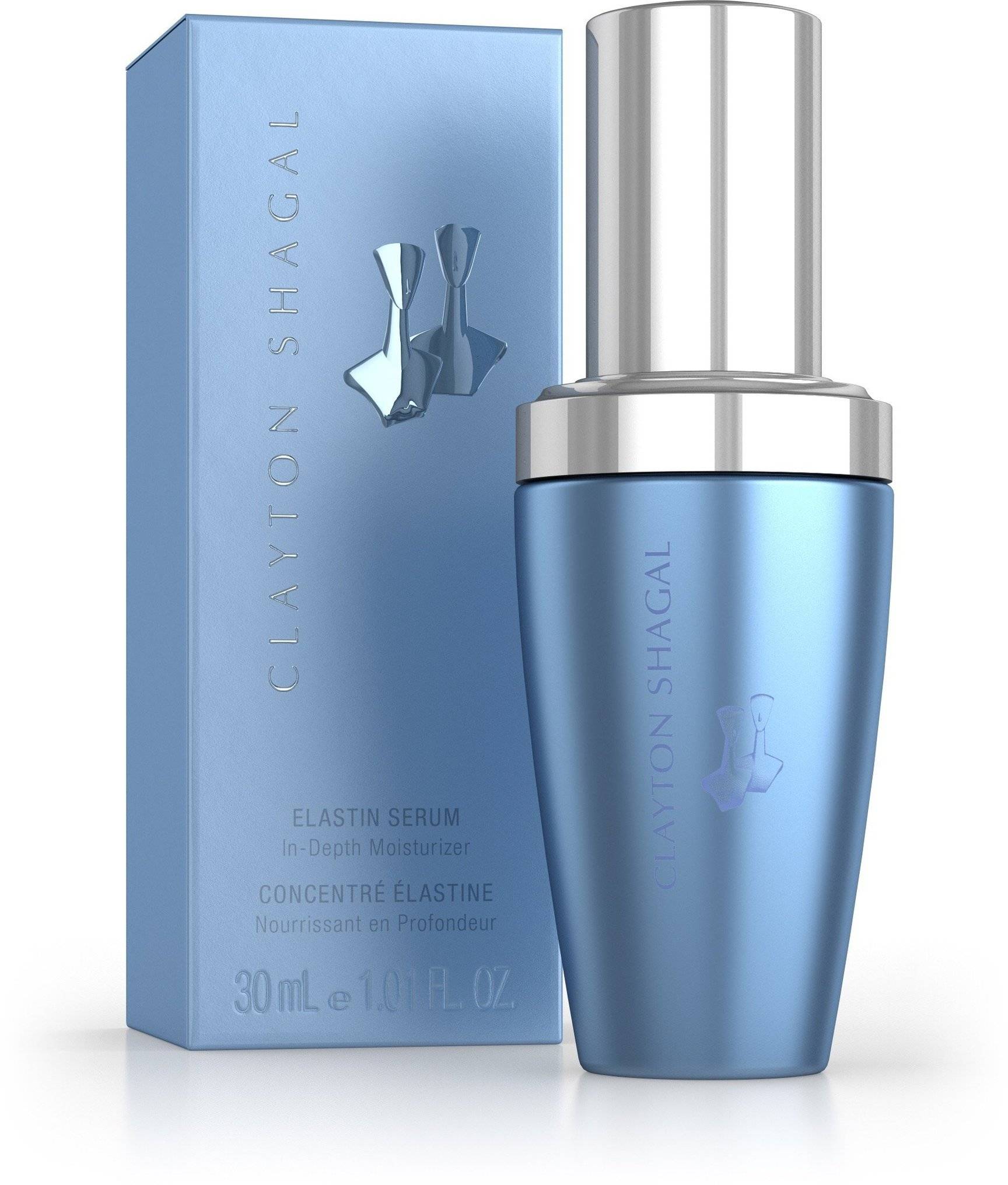≡ Sensitive Skin
The best way to care for Combination Skin
Φ 敏感型皮膚
Table of Contents
What is Sensitive skin?
Sensitive skin is a common condition and means your skin is more prone to reactions such as redness and itching. Most people who have sensitive skin notice occasional or frequent itching, burning and stinging of patches of skin. Sensitive skin is very treatable and may require a visit to the dermatologist.
While uncommon, sensitive skin can sometimes be a sign of a more serious condition, such as kidney disease, so it is always a good idea to see your doctor and get it checked out. Together, you will be able to develop a plan that usually includes relieving the itching or pain, treating the cause of the sensitivity and making a plan to protect your skin from irritants in the future.
What are the symptoms of sensitive skin?
Signs of sensitive skin come from the breakdown of your skin’s protective barrier. This can be caused by the environment, dehydration, or an underlying condition. Signs include:
- Rough, flaky patches
- Wrinkled, rough texture
- Redness
- Swelling
- Open sores or yellow crust over the skin
- Peeling skin
Sensitive skin can cause both objective signs and subjective symptoms. Objective signs are physical changes that your doctor can observe, such as redness, swelling or sores. They are changes to your skin’s protective barrier and are easy to observe from an outsider’s perspective.
The subjective symptoms refer to the feelings that sensitive skin can cause, like itching, burning and pain. They are just as real, but only felt or observed by you.
The Causes, Characteristics, and Diagnosis of Sensitive Skin
If you’re wondering, “Why does my skin hurt?” one of these reasons may be the culprit.
Contact Dermatitis
Contact dermatitis refers to the inflammation that can occur in your skin when it is exposed to an irritant.2 When the irritant, such as a strong fragrance in laundry detergent, comes in contact with your skin, it causes minor damage to the surface. In response, your body tries to protect itself from this perceived threat with an immune response.
This is similar to what you experience during an allergic reaction of the skin. Contact dermatitis is a common type of eczema.
Allergy
Dermatitis, or inflammation of the skin, can also be caused by an allergic response. When your skin has an allergic response, it means your immune system is in overdrive. When your skin touches an allergen, such as pollen when pulling weeds, your body tries to protect itself by releasing T-cells.2 This process can lead to redness and itching.
Rosacea
Rosacea is a skin condition that causes redness and swelling in the face and neck. It can start as flushing of the cheeks and sometimes spread to the ears. Doctors do not have an answer for what causes rosacea, but they know that people who are fair-skinned and have a family history are more at risk.
Acne
If you survived your teen years without a bout of acne, then you’re one of the lucky ones. Acne is a skin condition that causes pimples on the skin. It is the most common reason for seeing a dermatologist. There are plenty of myths for what causes it, but acne is triggered when your skin pores are clogged.
Dry Skin
It turns out the dry winter air may be enough to cause your skin sensitivity. According to the American Academy of Dermatology Association, excessively dry skin can put you at risk for developing another skin condition due to the irritation and itching.5
Other Causes
Less common causes of sensitivity can range from age to weather and everything in between. With age, your skin loses moisture and can become dry and cracked, putting you at risk for sensitive skin.
Certain medications, especially ones that treat hypertension, can cause dehydration and thus dry, irritated skin. Hormonal changes, such as those during the menstrual cycle, can also affect the skin. If you have ever received cancer treatment, you might have noticed patches of dry, itchy skin as a side effect.
As if you didn’t need one more reason to stay away from cigarettes—smoking speeds up skin aging and can lead to premature wrinkles and irritation. Pollution and some cosmetic products can also contribute.
Women Are More at Risk
Global studies have found that about 50% to 61% of women and 30% to 44% of men have experienced sensitive skin. One theory for why women are more prone to skin sensitivity is differences in skin thickness. Women may also be more at risk for dehydration and dry skin due to hormonal changes. These theories still require further research.
Serious Conditions
Most cases of sensitive skin can be easily treated, but it’s important to remember that skin irritation can sometimes be a sign of something more serious. Diseases that affect your skin or blood can sometimes manifest as sensitive skin. If you have any concerns about a new patch of sensitive skin, reach out to your doctor right away.
The following conditions may cause sensitive skin:
- Skin cancer
- Hodkin lymphoma
- Kidney disease
- Liver disease
- Shingles
- Multiple sclerosis
- HIV and other autoimmune conditions
Recommended Treatment for Sensitive Skin
Oceanic Facial
Soothing Facial – Needleless Mesotherapy
One Love Facial with Hydrating Eye & Lip Mask
Ocean Ninety – Full Body Massage & Active Collagen Facial
Recommended Product for Sensitive Skin
- Clayton Shagal Clinical Elasthy Extract
- Clayton Shagal Clinical Colhy Extract
- Clayton Shagal Elastin Serum
- Clayton Shagal Collagen Serum
- Clayton Shagal Clinical Colhy Gel
- Clayton Shagal Clinical Elasthy Gel
- Clayton Shagal Collagen Gel Plus
- Clayton Shagal Elastin Gel Plus
- Clayton Shagal Collagen Gel
- Clayton Shagal Elastin Gel
- Clayton Shagal Sensi Derm Cream
- Clayton Shagal Illumine Cream
- Clayton Shagal Cucumber and Avocado Mask
- Clayton Shagal Oat Bran Scrub
- Clayton Shagal Gel Lotion Cleanser
- Clayton Shagal Milk Cleanser
- Clayton Shagal Hydra Derm Cream
- Clayton Shagal Body Cream
- TIZO2® FACIAL PRIMER SUNSCREEN Non-Tinted Matte Finish SPF 40
- TIZO ULTRA ZINC BODY & FACE SUNSCREEN non-tinted dewy finish SPF 40
- Nano White Effect Brightening Gel Masque




